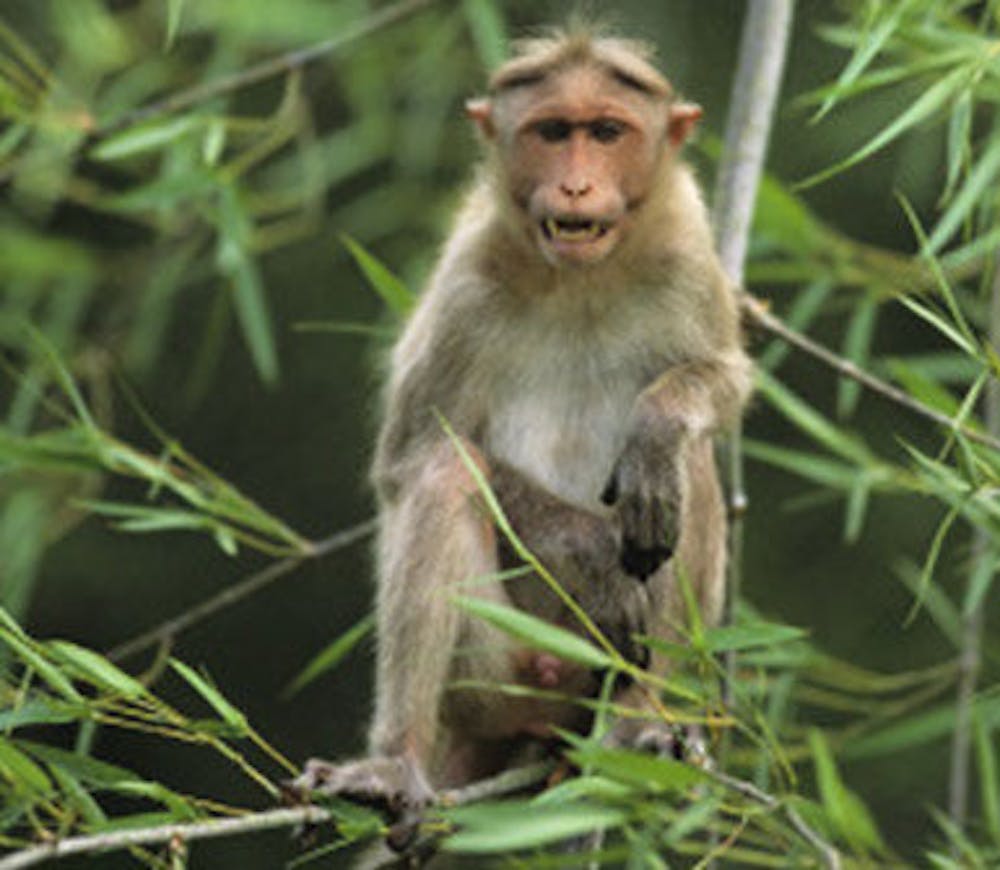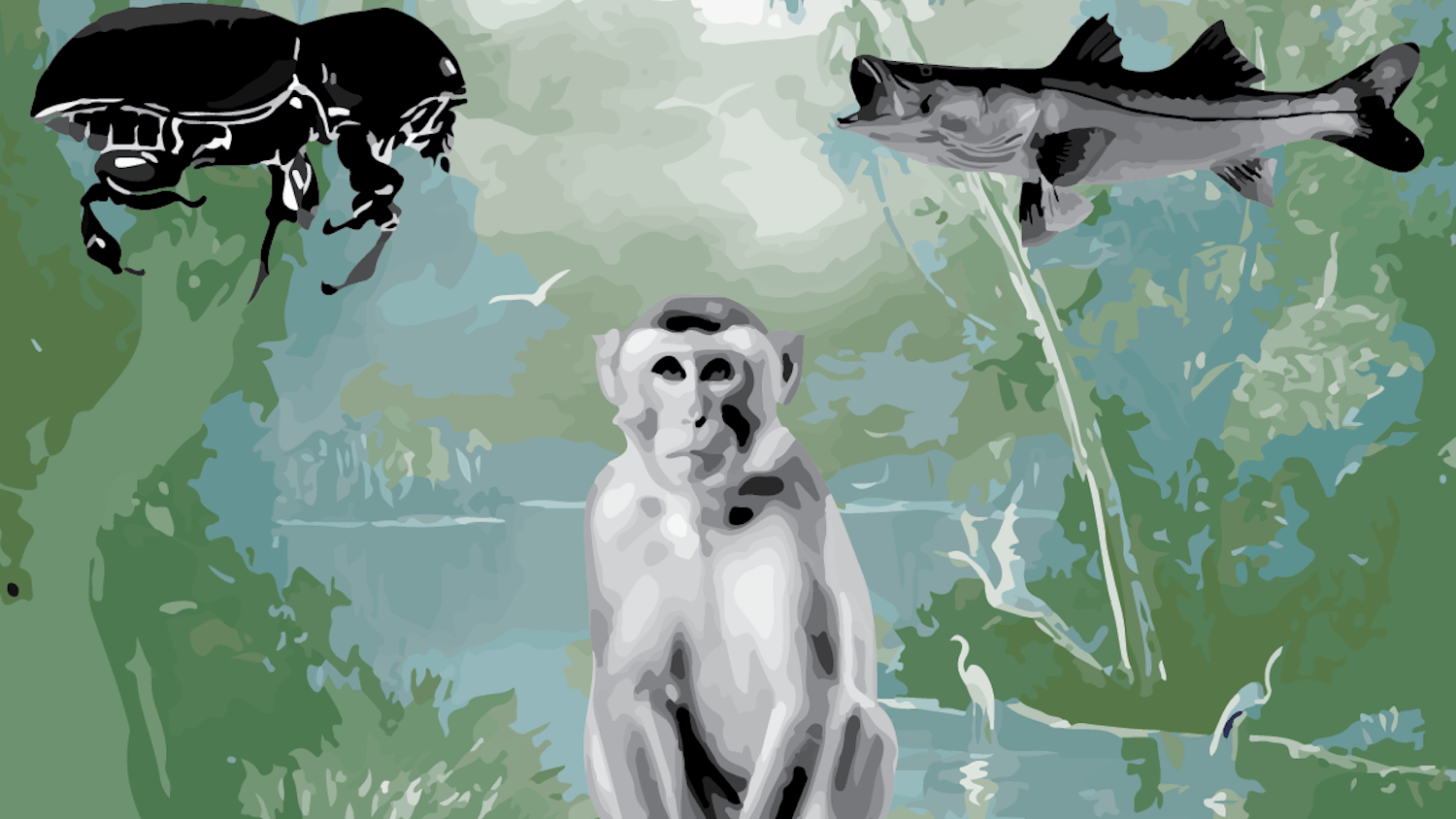An invasive species of monkey in Silver Springs State Park isn’t just a nuisance. A study shows they also pose a public health risk.
Many of the invasive rhesus macaques monkeys in Silver Springs State Park, east of Ocala, carry the herpes B virus and can transmit it to humans, according to a study that will be published in February by the Centers for Disease Control and Prevention. The park, which has about 175 macaques, is still considered safe for visitors, but park officials have urged visitors to avoid monkeys, wrote park manager Sally Lieb in an email. The Florida Fish and Wildlife Conservation Commission released a statement saying it supports the removal of the monkeys in order to eliminate the threat they pose to humans.
Transmission is most likely to occur when humans come into contact with a macaques’ bodily fluids, the report said. Although there have been no reports of human infection from the macaques at Silver Springs State Park, the CDC still considers there to be a risk.
“Given the current information available, we must consider the presence of the population of invasive rhesus macaques in Florida to be a public health concern,” the report said.
Catholic Gators Outdoors Ministry might move its hiking trip from the park to avoid the macaques, said Nick Lomas, a UF religion sophomore.
“That, as a trip leader, would make me hesitate and probably go to another spring,” the 19-year-old said.
Contact Jessica Giles at jgiles@alligator.org. Follow her on Twitter at @jessica_giles_.
A macaque monkey is pictured about. The species can carry the herpes B virus and transmit it to humans.






